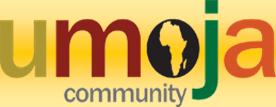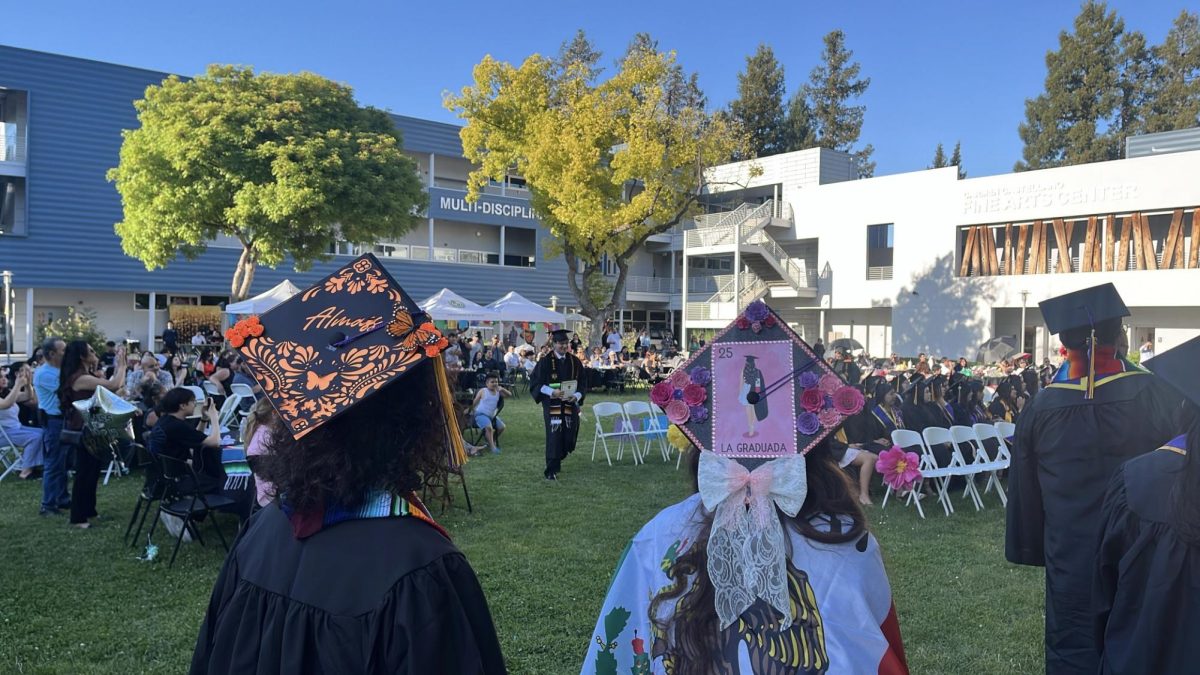Professor hired to brighten the horizon
Umoja is an academic program that involves counseling and services for students. It is set in place to encourage students to succeed in college level English, reading and writing.
The program was brought back to life at San Jose City College by Khalid White, ethnic studies professor and Umoja program coordinator, in 2008.
[media-credit name=”Umoja Logo” align=”alignright” width=”276″] [/media-credit]Umoja is targeted to the African-American community, but accepts students of all ethnicities to participate. It incorporates African-American culture, perspective and experience.
[/media-credit]Umoja is targeted to the African-American community, but accepts students of all ethnicities to participate. It incorporates African-American culture, perspective and experience.
“I am here for underrepresented students,” White said. “I am here for people who look like me and I just don’t mean my skin color.”
Umoja is a Swahili word for unity, which is the root of Umoja, stemmed from the“seven principles of Kwanzaa (/ˈkwɑːnzə/).”
Kwanzaa is a feast and gift-giving celebration that honors African heritage and is observed from Dec. 26 to Jan.1.
“We do teach in a method to abreast our students with Kwanzaa principles because we want them to be successful,” Pamela Turner, Umoja counselor said.
The first principle of Kwanzaa is Umoja. Success starts with unity, unity of family, community, nation and race.
“Test scores show that using the Umoja method of teaching works,” White said.
It is more so the preparation students received in high school and the dialect they speak that become the grade level that they operate on. Umoja identifies the student’s weak points in order to strengthen them.
“I have based the program principles on the book ‘How to Teach Men of Color: Four Critical Conditions’ and my own personal studies written in my doctoral dissertation,” White said. “This is in-depth factual studies that have tested the truth. Numerous studies on black men in Umoja college programs from Sacramento to San Diego have proven to be valid.”
Classes are catered around the needs of inquiring students, who can become eligible to transfer to Univesity of Californias and California State Universities by completing the program.
“My son Marquis was in the Umoja program as a tutor and because of that, he was able to become a teacher at a charter school,” Julinda LeDee, senior administrative assistant of the Language Arts Division said.
“My daughter Imani was in the Umoja program and now moved on to Fayette Ville University (a historically African-American college) thanks to Umoja and Heidi (Kozlowski, distance education coordinator and former Umoja staff).”
Students who have had the honor of joining the group come to grow together in a sense of brother and sisterhood. The chosen ones for this program have the opportunity to experience encounters with students and teachers aiming for success. Twenty to thirty students are selected by the community every semester to be part of the program.
“They build that unity because they start respecting one another’s point of view, and it doesn’t have to be yours,” Turner said.
This program is a foundation for a future and success; if future matters and success counts that is what Umoja is striving to create. Umoja has a counselor that specializes in counseling for life building and teachers that prepare students for reality in fast pace university classes.
“City College needs programs that deal with basic academic students; students that are below college university level,” White said. “We need programs that deal with the African-American experience as essential to American experience. Umoja bridges the gap between what (we) need and what existed.”
“Professor White gave my son the confidence and motivation to go to Copenhagen University in Europe,” LeDee said.
About $20,000 to $30,000 was raised for Umoja students to fly to Belize in the summer of 2014 for the studies of emancipation. Within a week of the journey, they were featured in a report in Amandala, the nation’s largest newspaper.
Umoja students will head to Ghana this fall season to study African-American roots. Students who are interested in the program please contact Umoja staff.
“What happens to any African-American in any region happens to me; whatever happens to any American across the world, happens to me because that is how society will treat us as a whole,” White said. “I want what I do here to globe-trot the world positively.”






